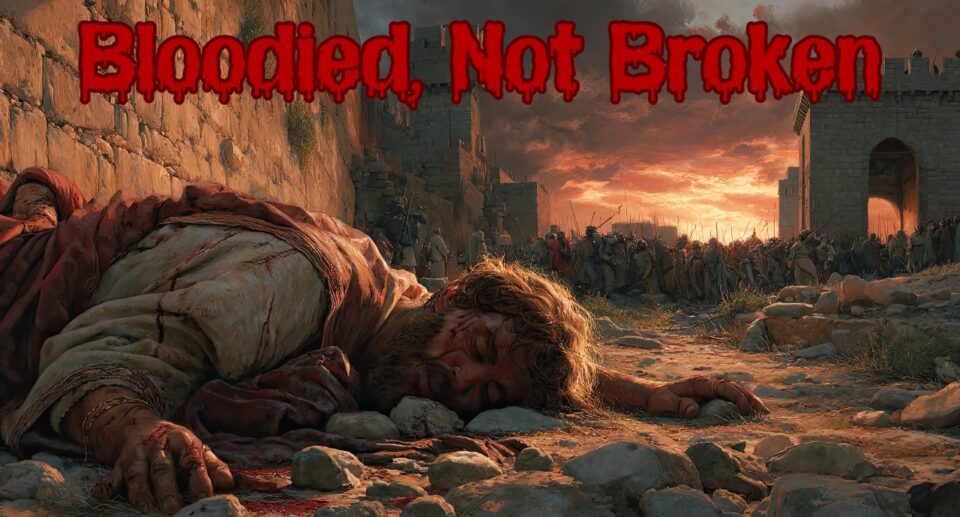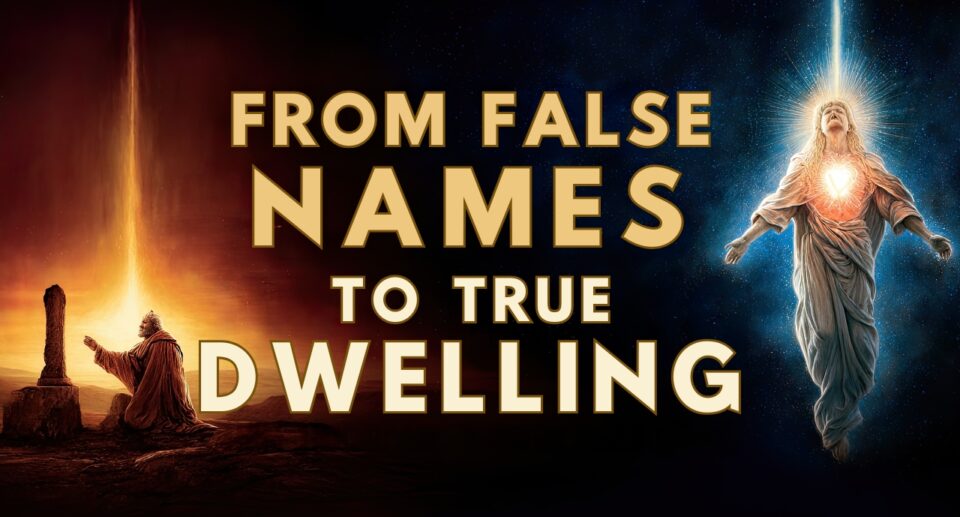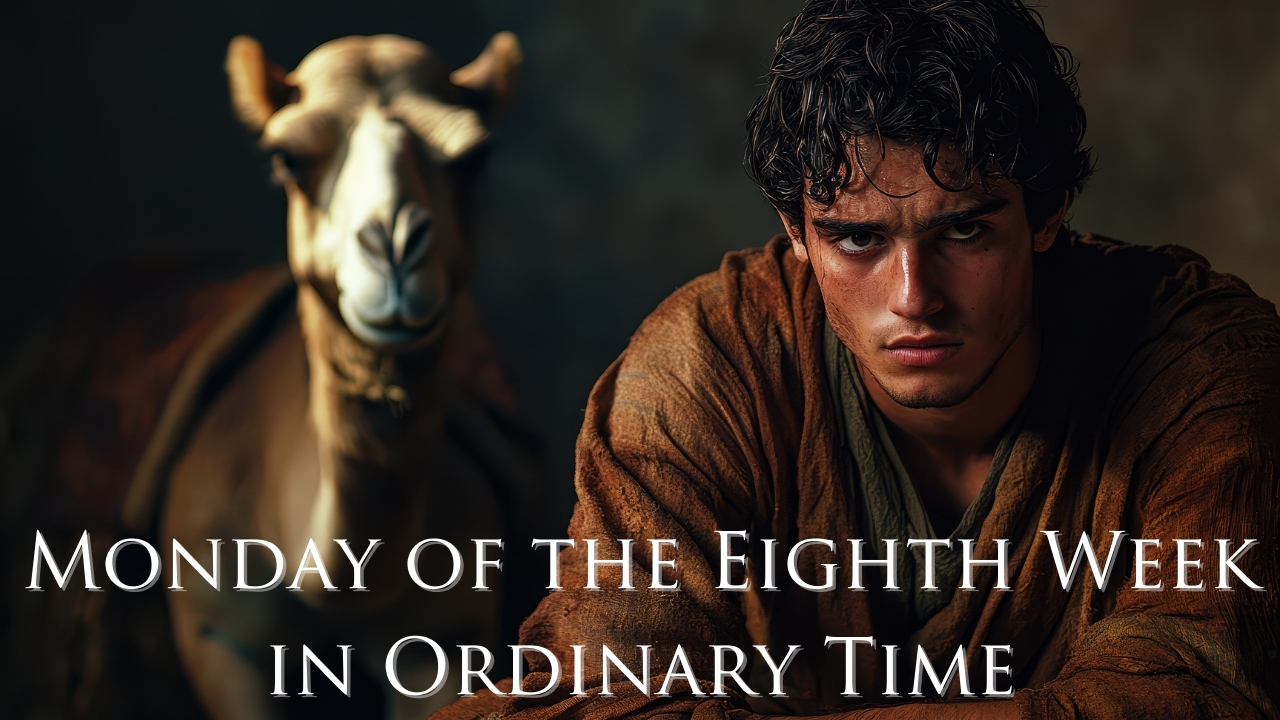Left for Dead: When Suffering Reveals Your Purpose | Daily Readings | May 20, 2025

May 20, 2025 – Daily Catholic Lectionary Readings for Tuesday of the Fifth Week of Easter.
They dragged Paul’s bloodied body outside the city and left him for dead. Then he got up and walked back in. This isn’t just an amazing survival story – it’s a radical challenge to our comfort-obsessed Christianity. What if suffering isn’t a detour from your purpose but the very path itself? What if the stones flying at you aren’t obstacles to your calling but revelations of it?
This cinematic reflection explores:
- Why Jesus promised Paul suffering instead of success
- How persecution confirmed rather than contradicted Paul’s calling
- The forgotten truth that “through many tribulations we must enter the kingdom”
- What happens when we embrace suffering as sacred participation rather than unfortunate interruption
Readings: Acts 14:19-28; Psalm 145:10-11, 12-13ab, 21; John 14:27-31a
Perfect for anyone questioning God’s presence in their pain, struggling to find purpose in difficulty, or needing courage to rise again after being knocked down.
#SacredSuffering #RisingFromStones #PurposeInPain #TuesdayReflection #FifthWeekEaster
Left for Dead: When Suffering Reveals Your Purpose
They dragged his bloodied body outside the city gates and left him for dead.
The same crowd that days earlier had been ready to worship Paul as a god now believed they’d killed him. The stones had done their work. Or so they thought.
The disciples gathered around his broken form, perhaps preparing for burial. And then Paul got up. No dramatic healing. No angels. No explanation. He simply rose and walked back into the very city that had just tried to murder him.
The next day, he and Barnabas moved on to Derbe as if nothing extraordinary had happened.
This is insanity by normal standards. Who returns to their attempted murderers? Who shakes off a stoning like a bad night’s sleep? Who continues preaching the same message that nearly got them killed?
Someone who understood exactly what he’d signed up for.
When Jesus encountered Saul on the Damascus road, he didn’t promise fame or success. He promised suffering: “I will show him how much he must suffer for the sake of my name.” Not might suffer. Not could suffer. Must suffer.
Paul’s suffering wasn’t an accident or a detour from his purpose. It was central to it.
And here’s the part we struggle with: the stoning wasn’t evidence that Paul had failed or made a mistake. It was confirmation he was exactly where he was supposed to be, doing exactly what he was called to do.
After preaching in Derbe, Paul and Barnabas did something even more astonishing. They deliberately backtracked through Lystra, Iconium, and Antioch – the very cities where they’d faced persecution. But this time, they focused on strengthening the believers, telling them something we’ve sanitized from our gospel: “Through many tribulations we must enter the kingdom of God.”
Not “might” enter. Not “could” enter. Must enter.
The modern prosperity gospel suggests suffering means you’ve missed God’s best plan. Financial struggles? You lack faith. Health problems? Secret sin. Relationship difficulties? Not claiming your blessings.
Paul would have stared in disbelief at such teaching. He’d tell us we’ve rewritten the script, exchanging the cross for a crown, before the resurrection.
Here was a man who understood something we desperately need to recover: suffering for Christ isn’t just an unfortunate possibility. It’s a sacred privilege.
“For he has graciously granted you the privilege not only of believing in Christ, but of suffering for him as well,” Paul would later write to the Philippians. A privilege. Not a punishment.
This explains why Paul could rise from that stoning and keep going. He didn’t interpret suffering as evidence of God’s absence but as confirmation of his presence. Not as mission failure but as mission fulfillment.
After establishing churches and appointing elders, Paul and Barnabas returned to Antioch with an extraordinary report. They didn’t detail their hardships or showcase their scars. Instead, they “reported all that God had done with them, and how he had opened a door of faith to the Gentiles.”
Pain became purpose. Wounds became doorways. Rejection became opportunity.
This perspective transforms how we face difficulty. When that relationship falls apart, when the diagnosis comes, when the job disappears, when the stones start flying – what if these aren’t interruptions to God’s plan but integral to it?
Jesus himself modeled this in today’s Gospel. Hours before his arrest and torture, he speaks not of escape but acceptance: “I do as the Father has commanded me.” Then he says something stunning: “Rise, let us be on our way.”
Toward betrayal. Toward mockery. Toward crucifixion.
Jesus didn’t seek suffering, but he didn’t flee it either. He recognized it as the pathway, not the obstacle. He understood what we desperately try to deny – that some doors only open through pain.
The world tells us to avoid suffering at all costs. Build enough wealth, create enough security, accumulate enough power – and maybe you can insulate yourself from pain.
Christ offers something radically different. Not an escape from suffering, but a transformation of it. Not prosperity that helps you avoid pain, but peace that survives even stoning.
“My peace I give to you. Not as the world gives do I give it to you.” The world’s peace depends entirely on favorable circumstances. Christ’s peace penetrates them.
Paul’s life exposes the bankruptcy of our comfort-obsessed Christianity. We pray for open doors but run from difficulties. We ask for purpose but reject suffering. We want resurrection without crucifixion.
Let’s be honest – we admire Paul’s resilience from a distance, but we don’t really want his life. We want his platform without his pain, his impact without his injuries, his legacy without his losses.
But what if we’ve missed the point entirely? What if the suffering isn’t the detour from the mission but the very path itself? What if the stones aren’t obstacles to our purpose but revelations of it?
When Paul got up after being stoned, he didn’t just demonstrate supernatural resilience. He revealed what happens when someone fully embraces Christ’s invitation to suffering as sacred participation.
The question isn’t whether stones will fly in your life. They will. The question is whether you’ll stay down when they hit or get up and keep going – recognizing that the very path of suffering might be opening doors only visible to those willing to endure.
“Through many tribulations we must enter the kingdom of God.”
Maybe it’s time to stop praying for stones to disappear and start asking for strength to rise when they hit. To stop seeing suffering as evidence we’ve lost our way and start recognizing it as confirmation we’re following the One who suffered first.
Paul’s bloodied rise outside Lystra isn’t just ancient history. It’s a challenge to our entire approach to discipleship. Not comfort at all costs, but purpose at any cost – even if that cost is measured in stones.






